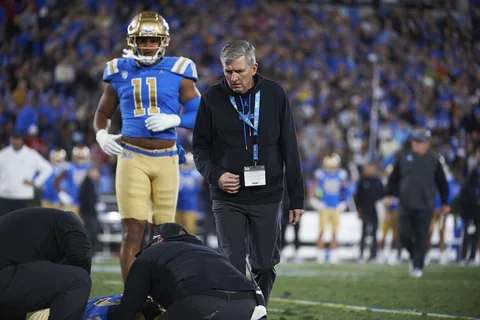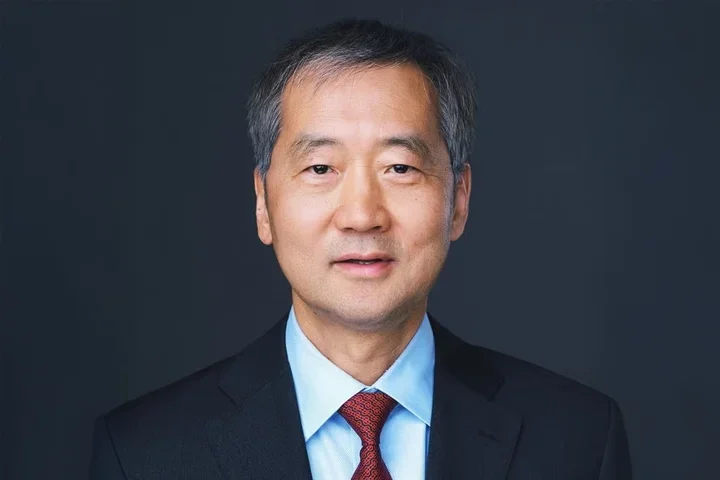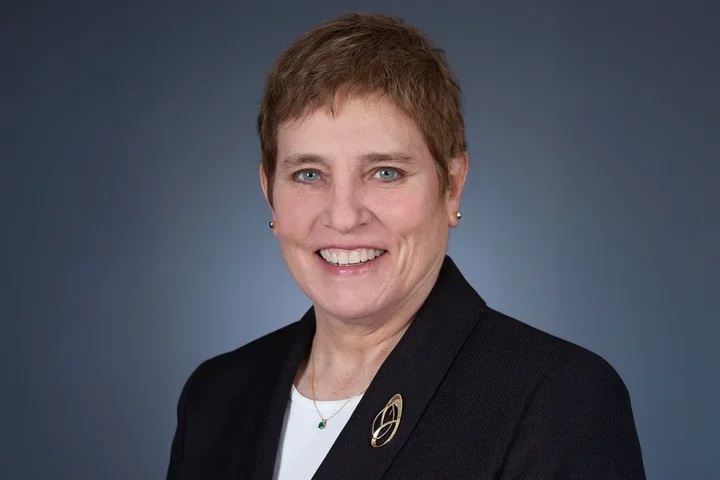Sports Medicine Careers
A Guide to Different Job Opportunities in Sports Medicine

What is Sports Medicine?
Sports medicine is an area of healthcare focused on athletes. The field attracts professionals from a range of different medical, scientific, and physiological disciplines. Collectively, these professionals provide athletes with multilateral support for health, wellness, and performance, as well as injury recovery and prevention.

“Sports medicine is a microcosm of medicine,” says Dr. Nicholas M. Bernthal, MD, Chair and Executive Medical Director of the Department of Orthopaedic Surgery in the David Geffen School of Medicine at UCLA (DGSOM).
Broadly speaking, sports medicine professionals address everything and anything that impacts an athletes’ health and performance. The field is not defined by any specific care modality or service but instead by the niche patient population so many different practitioners feel drawn to serve.
“Everybody loves the idea of sports medicine because they love elite athletes,” says Dr. Bernthal. “The key to practicing sports medicine is being able to break things down into the shared, common actions of the human body—to make objective what seems so intrinsically subjective.”
Bringing together experts from multiple disciplines to collaborate on an athlete’s care is one way UCLA strives toward objective, open-minded insight and discovery in sports medicine care.
Which Career Path is Right for You? We Explore 8 Different Options:
- Team Physician
- Orthopedic Surgeon
- Sports Neurologist
- Sports Cardiologist
- Sports Nutritionist
- Certified Athletic Trainer
- Physical Therapist
- Sports Psychologist
UCLA’s Center for Sports Medicine

If sports medicine is a microcosm of medicine, then UCLA’s Sports Medicine Center is a microcosm of the broader field of sports medicine. The center is staffed by a variety of interdisciplinary experts, each a master of their respective craft.
These experts approach teamwork with the same commitment and enthusiasm as any high-performing sports team. Each practitioner on the team is involved with and informed on all aspects of the patient’s care—not only the aspects of care aligned with their job function. This improves patient outcomes since the athlete benefits from a collaborative, coordinated care plan that weaves together numerous areas of expertise.
“Consider an athlete coming back from an injury. Instead of thinking of the surgeon as only doing surgery and the physical therapist as only doing rehabilitation, we look at how all parts of recovery are or can be connected,” Dr. Bernthal says. “Doing that allows us to excel.”
The diversity of Southern California further feeds the spirit of collaboration and discovery surrounding sports medicine at UCLA. Los Angeles is home to a remarkably diverse population comprising individuals interested in nearly any sport imaginable.
“In Southern California, we've got people of all backgrounds playing all kinds of sports at all ages,” Dr. Bernthal says. “They represent sports and interests from all over the world.”
This diversity creates a fertile ground for discovery and innovation. Treating someone who plays a relatively unfamiliar sport can sometimes reveal untapped physiological insights that can benefit players of other sports as well. Observing a cricket player, for example, gave the team working with baseball players new ideas and approaches to throwing.
Sports Partnerships at UCLA
In addition to helping all athletes achieve optimal performance in their sports, the UCLA team feels passionate about leveraging the practically universal appeal of sports to bring communities together and promote understanding and equity.
UCLA proudly maintains hospital partnerships with the Dodgers, the Lakers, and the Sparks. They were recently named the official team physicians for the USA Basketball organization. Among other privileges, UCLA physicians will provide healthcare coverage for the USA men’s and women’s basketball teams during the next two Olympic Games and FIBA Basketball World Cups.
"We're honored to extend our Orthopaedic and Sports Medicine expertise to support USA Basketball,” Dr. Bernthal said in UCLA Health’s partnership announcement. “Our experience with top professional and collegiate athletes in Los Angeles, including the Lakers, Dodgers, Sparks, and UCLA Athletics, makes us primed to help USA Basketball optimize their performance on the global stage. We look forward to both providing best in class clinical care and partnering to innovate in sports science to develop tomorrow’s treatments.”
The partnerships don’t only benefit athletes and communities. They also help advance the field of sports medicine as a whole by affording UCLA’s team the privilege of working with some of the best athletes in the world.
This group is highly incentivized to prevent injuries.
“This is their livelihood,” Dr. Bernthal explains. “Major industries are supported by their performance. They have an unrelenting desire to achieve perfection in their physical state.”
As elite athletes are so eager to improve their performance and prevent injury, they’re willing to invest a great deal of time and energy in their care. UCLA’s sports medicine team gleans a wealth of valuable and translatable information from their encounters with elite athletes.
“We learn so much from them that we can apply in caring for the broader patient population we serve,” Dr. Bernthal says. “Our mission is to take care of the athlete in everyone.”
Sports Medicine Degree
Reflecting on the landscape of sports medicine careers, the first word that comes to Dr. Bernthal’s mind is breadth.
A sports medicine practice covers myriad medical and physiological goals and concerns that can and do impact athletes. That expansive goal demands a commensurate breadth of practitioners and professionals.
That’s why the field of sports medicine encompasses a dynamic range of job types and career opportunities. The training and education paths required for each role are as varied as their functions and areas of expertise.
Sports Medicine Roles on the Medical School / MD Track
The following roles in sports medicine require traditional medical training, which includes earning a medical degree, completing residency training in a primary specialty, and finishing specialized fellowship training.
Sports Medicine Roles on the Advanced Degrees and Certifications Track
The following roles in sports medicine require different advanced degrees and/or formalized post-graduate training or certification.
Team Physician
A team physician is a medical doctor affiliated with a sports team or organization. Team physicians do for a sports team what a primary care or family medicine doctor might do for a family. They manage routine, preventative, and urgent medical care.
Quick Facts: Team Physician
- What are the core job responsibilities of a team physician?
- Manage team member recovery and rehabilitation following injuries.
- Address sports-related health concerns using the full range of medical care modalities, including medication and minimally invasive procedures.
- Offer medical expertise in support of routine strategies for optimizing health and reducing risk of injury.
- Provide support for away games, including preparing for every possible scenario that could happen before, during, and after team travel.
- Where can a team physician find employment?
- Team physicians may find employment opportunities in a variety of different settings, including:
- Professional athletic teams
- Olympic teams and organizations
- School athletic teams of all levels
- Athletic organizations, associations, and conferences
- How much does a team physician make?
- General physicians practicing in the United States make a mean of $248,640 annually, according to recent data from the U.S. Bureau of Labor Statistics.
- A team physician’s earning potential varies widely depending on…
- Additional clinical appointments. Most team physicians maintain an additional clinical practice beyond their role as team physician.
- The team they serve. For example, a physician serving a professional athletic team may earn more than a physician serving a team at a mid-sized college.
- Other factors that affect earning potential include the physician’s location and industry of work, education, and certifications.
Orthopedic Surgeon
General orthopedic surgeons (also called orthopedic doctors or orthopedists) are physicians specially trained to care for all aspects of the musculoskeletal system with an emphasis on surgical interventions.
Quick Facts: Sports Orthopedic Surgeons
- What are the core job responsibilities of a sports orthopedic surgeon?
- Treating injuries and pain linked to athletes’ musculoskeletal systems (muscles, bones, ligaments, tendons, and cartilage).
- Communicating with patients and interested parties about progress and managing recovery expectations.
- Leveraging musculoskeletal expertise to optimize patients’ athletic performance and quality of life.
- Where can a sports orthopedic surgeon find employment?
- Sports orthopedic surgeons may find employment opportunities in a variety of different settings, including:
- Professional athletic teams and organizations
- Olympic teams and organizations
- School athletic teams of all levels
- Academic medical centers and other research institutions
- Sports rehabilitation centers
- Sports medicine clinics
- Healthcare facilities (clinics, hospitals, and private practices)
- Medical device developers
- How much does a sports orthopedic surgeon make?
- Estimated annual salary range: $200,000 to $600,000
- Orthopedic surgeons practicing in the United States make around $200,000 to $600,000 annually. Earning potential varies widely depending on the orthopedist’s location and industry of work, education, and specializations.
Sports Neurologist
Sports neurologists treat and research neurologic injuries sustained during athletic activities, such as concussions, spinal-cord injuries, and peripheral nerve injuries.
Quick Facts: Sports Neurologists
- What are the core job responsibilities of a sports neurologist?
- Manage treatment, recovery and rehabilitation plans for neurologic injuries sustained during athletic activities, such as concussions, spinal-cord injuries, and peripheral nerve injuries.
- Develop and consult on safety protocols for athletes with existing neurologic conditions—such as epilepsy or multiple sclerosis.
- Educate and motivate towards brain healthy habits to enhance performance, promote brain health, and prevent or prolong the onset of dementia.
- Where can a sports neurologist find employment?
- Sports neurologists may find employment opportunities in a variety of different settings, including:
- Professional athletic teams and organizations
- Olympic teams and organizations
- School athletic teams of all levels
- Concussion centers
- Academic medical centers and other research institutions
- Sports rehabilitation centers
- Sports medicine clinics
- Veterans/VA Hospitals
- Healthcare facilities (clinics, hospitals, and private practices)
- How much does a sports neurologist make?
- Estimated annual salary range: $150,000 to $400,000
- Neurologists practicing in all industries in the United States make on average around $150,000 to $400,000 annually. Earning potential varies widely depending on the neurologist’s location and industry, education, and certifications.
Sports Cardiologist
A cardiologist is a physician who specializes in diagnosing and treating conditions affecting the cardiovascular system, which includes the heart, veins, arteries, and capillaries. A sports cardiologist does the same thing for a niche patient population of athletes—highly active people whose hearts undergo above-average strain.
Quick Facts: Sports Cardiologists
- What are the core job responsibilities of a sports cardiologist?
- Help athletes with diagnosed cardiovascular conditions, risk factors, or warning signs safely participate in their sport.
- Monitor athletes for emerging symptoms.
- Educate athletes, staff, and coaches on heart health and the warning signs of cardiac events.
- Where can a sports cardiologist find employment?
- Sports cardiologist may find employment opportunities in a variety of different settings, including:
- Professional athletic teams and organizations
- Olympic teams and organizations
- School athletic teams of all levels
- Academic medical centers and other research institutions
- Sports rehabilitation centers
- Sports medicine clinics
- Healthcare facilities (clinics, hospitals, and private practices)
- Medical device developers
- How much does a sports cardiologist make?
- Estimated annual salary range: $100,000 to $470,000
- Cardiologists practicing in all industries in the United States may make anywhere from $100,000 to $470,000 annually, according to the most recent data from the U.S. Bureau of Labor Statistics. Earning potential varies widely depending on the cardiologist’s location and industry of work, education, and specializations.
Sports Nutritionist / Registered Dietician
Sports nutritionists and dietitians create customized dietary plans to optimize athletes’ performance and overall health. They assess each athlete’s physiology, performance demands, and other physical and lifestyle factors to determine how to best support each through diet and nutrition.
Quick Facts: Sports Nutritionist / Registered Dietitians
- What are the core job responsibilities of a sports nutritionist / dietitian?
- Evaluate athletes’ unique dietary needs and preferences.
- Create individualized dietary plans to optimize athletes’ performance and overall health.
- Provide nutritional expertise to strengthen multidisciplinary training, performance, and recovery initiatives.
- Where can a sports nutritionist / dietitian find employment?
- Sports nutritionists and dietitians may find employment opportunities in a variety of different settings, including:
- Professional athletic teams and organizations
- Olympic teams and organizations
- School athletic teams of all levels
- Sports rehabilitation centers
- Sports medicine clinics
- Healthcare facilities (clinics, hospitals, and private practices)
- Gyms/training facilities
- How much does a sports nutritionist / dietitian make?
- Estimated annual salary range: $50,000 - $80,000
- Registered dietitians practicing in the United States make around $50,000 - $80,000 annually. Earning potential varies widely depending on the dietitian’s location and industry of work, education, and certifications.
Certified Athletic Trainer
Certified athletic trainers are clinicians who work closely with athletes to help them feel and perform their best. They help athletes stay healthy, manage injuries, implement injury prevention strategies, and improve performance.
Quick Facts: Certified Athletic Trainer
- What are the core job responsibilities of a certified athletic trainer?
- Assess, treat, and help prevent athletic injuries.
- Create training and treatment plans to support athletes’ performance goals and physical health.
- Provide urgent and emergency care as needed.
- Where can a certified athletic trainer find employment?
- Certified athletic trainers may find employment opportunities in a variety of different settings, including:
- Professional athletic teams and organizations
- Olympic teams and organizations
- Athletic events and tournaments (per diem)
- School athletic teams of all levels
- Sports rehabilitation centers
- Sports medicine clinics
- Healthcare facilities (clinics, hospitals, and private practices)
- Gyms/training facilities
- Corporate, military, and first-response environments
- How much does a certified athletic trainer make?
- Estimated annual salary range: $50,000 - $80,000
- Athletic trainers practicing in the United States make around $40,000 - $80,000 annually, according to recent data from the U.S. Bureau of Labor Statistics. Earning potential varies widely depending on the trainer’s location and industry of work, education, and certifications.
Physical Therapist
Physical therapists in sports medicine help athletes recover from injuries and prevent future ones. The therapeutic programs they develop center around exercises, stretches, and other forms of physical movements and manipulations, including massage.
Quick Facts: Sports Physical Therapists
- What are the core job responsibilities of a sports physical therapist?
- Develop and implement sustainable recovery and rehabilitation plans centered around exercises, stretches, and other forms of physical movements and manipulations, including massage.
- Support athletes in improving mobility, range of motion, strength, and functionality.
- Educating and advising athletes on sustaining the benefits of physical therapy in the long run.
- Where can a sports physical therapist find employment?
- Sports physical therapists may find employment opportunities in a variety of different settings, including:
- Professional athletic teams and organizations
- Olympic teams and organizations
- School athletic teams of all levels
- Sports rehabilitation centers
- Sports medicine clinics
- Healthcare facilities (clinics, hospitals, and private practices)
- Gyms/training facilities
- How much does a sports physical therapist make?
- Estimated annual salary range: $70,000 to $130,000
- Physical therapists practicing in the United States make an average of around $70,000 to $130,000 annually, according to recent data from the U.S. Bureau of Labor Statistics. Earning potential varies widely depending on the therapist’s location and industry of work, education, and certifications.
Sports Psychologist
Like other sports medicine professionals, sports psychologists help athletes perform to their full potential. Their contribution to this collective aim revolves around athletes’ mindset, mental health, and psychology.
Quick Facts: Sports Psychologists
- What are the core job responsibilities of a sports psychologist?
- Manage the mental-health needs of individual athletes and entire teams.
- Offer evidence-based psychological insights to team and coaching staff as part of broader performance optimization strategies.
- Provide individual counseling on a regular basis.
- Where can a sports psychologist find employment?
- Sports psychologists may find employment opportunities in a variety of different settings, including:
- Professional athletic teams and organizations
- Olympic teams and organizations
- School athletic teams of all levels
- Concussion centers
- Academic medical centers and other research institutions
- Sports rehabilitation centers
- Sports medicine clinics
- Healthcare facilities (clinics, hospitals, and private practices)
- How much does a sports psychologist make?
- Estimated annual salary range: $80,000 to $150,000
- Psychologists practicing in all industries in the United States make on average around $80,000 to $150,000 annually, according to the most recent data from the U.S. Bureau of Labor Statistics. Earning potential varies widely depending on the psychologist’s location and industry of work, education, and specializations.



